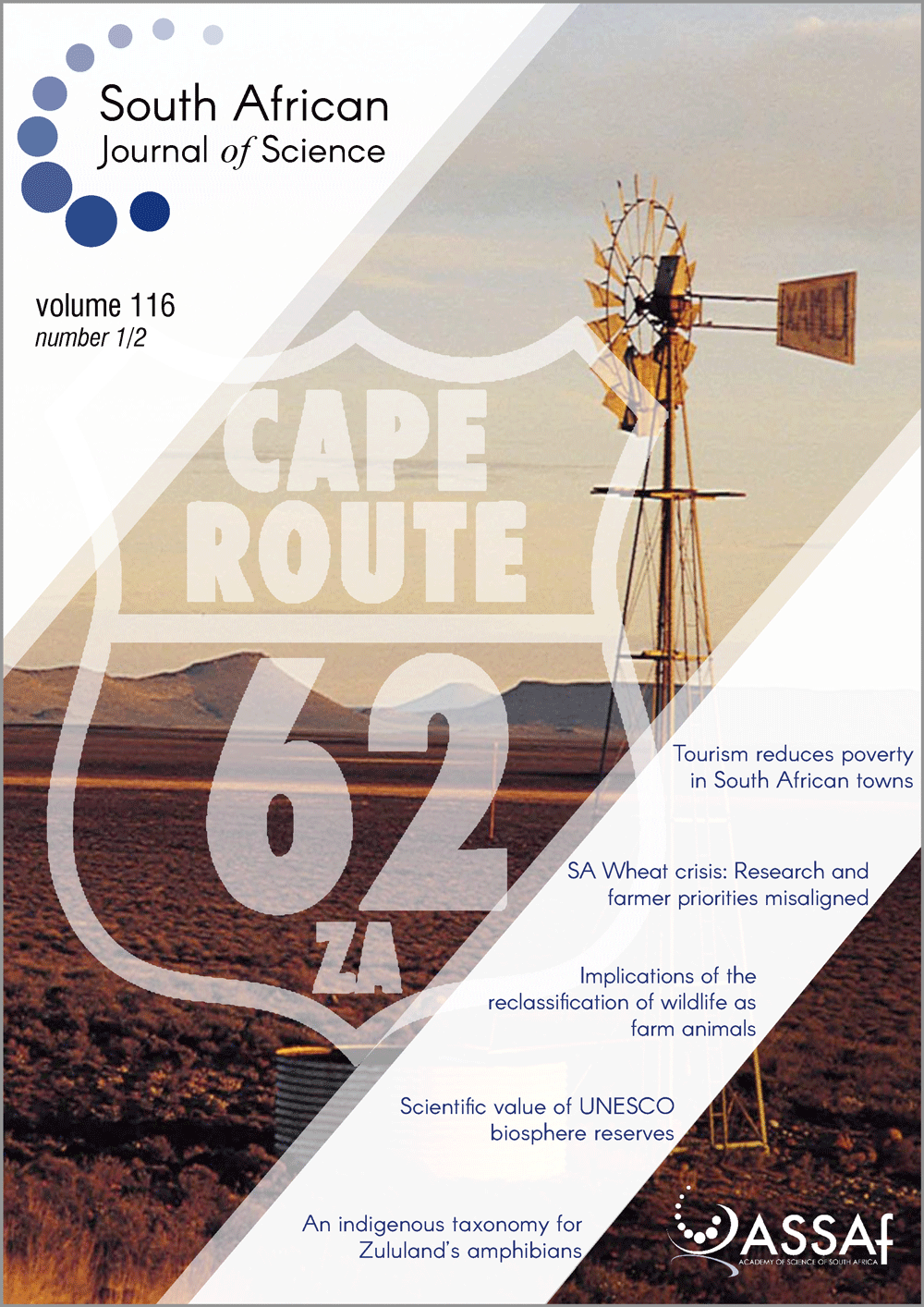Psycho-hormonal effects of aerobic fatigue on collegiate female soccer players
DOI:
https://doi.org/10.17159/sajs.2020/6095Keywords:
cortisol, mood, anxiety, football, exhaustionAbstract
Up to 95% of a soccer match entails aerobic actions that may cause fatigue. Little is known about the effects of fatigue on the hormonal and psychological states of female players. Cortisol values (saliva sample), state anxiety (Spielberger State-trait Anxiety Inventory) and mood scores (Incredibly Short Profile of Mood States [ISP], comprising six subscales and total mood disturbances [TMD]) of 43 female players (aged 22.0±2.7 years) were taken immediately prior to and 15 min after an aerobic fatiguing test (AFT: Yo-Yo Intermittent Recovery [YYIR] test). Cortisol increased (d=0.7, p=0.007) and ISP–confusion and ISP–vigour decreased (d=0.5, p=0.01–0.02). At pre-AFT, a slight positive relationship between cortisol and anxiety-absence (r=0.3, p=0.05) was seen. TMD consistently demonstrated a strong relationship with all ISP and anxiety scores (r>0.4, p<0.01). Post-AFT results demonstrated a positive relationship between cortisol and blood lactate (r=0.3, p=0.04), between ISP–anger with maximal heart rate (r=0.3, p=0.03), ISP–anger and YYIR level as well as ISP–fatigue (r=0.4, p=0.04), and between perceived exertion rate and ISP–vigour (r=-0.4, p=0.008) as well as ISP–fatigue (r=0.3, p=0.05). Fatigue caused by prolonged activity may be a greater physiological than psychological stressor, although both may affect soccer performance. We recommend training players to increase their aerobic capacity to ensure maximal quality match-time before fatigue and its subsequent adverse physiological and psychological effects set in.
Significance:
- The YYIR-1 test is effective in producing significant changes in both the hormonal and psychological states of female soccer players.
- Conditioning staff can effectively implement a mood state questionnaire to predict possible psychological stress (increase in state or trait anxiety) prior to and after a stressor.
- A relationship exists between cortisol and the absenteeism of anxiety prior to this fatiguing test, as well as with blood lactate thereafter. Therefore, the State-trait Anxiety Inventory questionnaire can be administered and blood lactate samples can be collected as they may display sensitive information regarding hormonal state.
- A positive relationship exists between the maximal heart rate achieved following an aerobic fatiguing test and various mood subscales experienced. Thus, with an increase in heart rate (as frequently observed due to fatigue), it can be assumed that an increase in perceived negative mood state might take place.
Published
Issue
Section
License

All articles are published under a Creative Commons Attribution 4.0 International Licence
Copyright is retained by the authors. Readers are welcome to reproduce, share and adapt the content without permission provided the source is attributed.
Disclaimer: The publisher and editors accept no responsibility for statements made by the authors
How to Cite
- Abstract 1189
- PDF 867
- EPUB 262
- XML 455












.png)